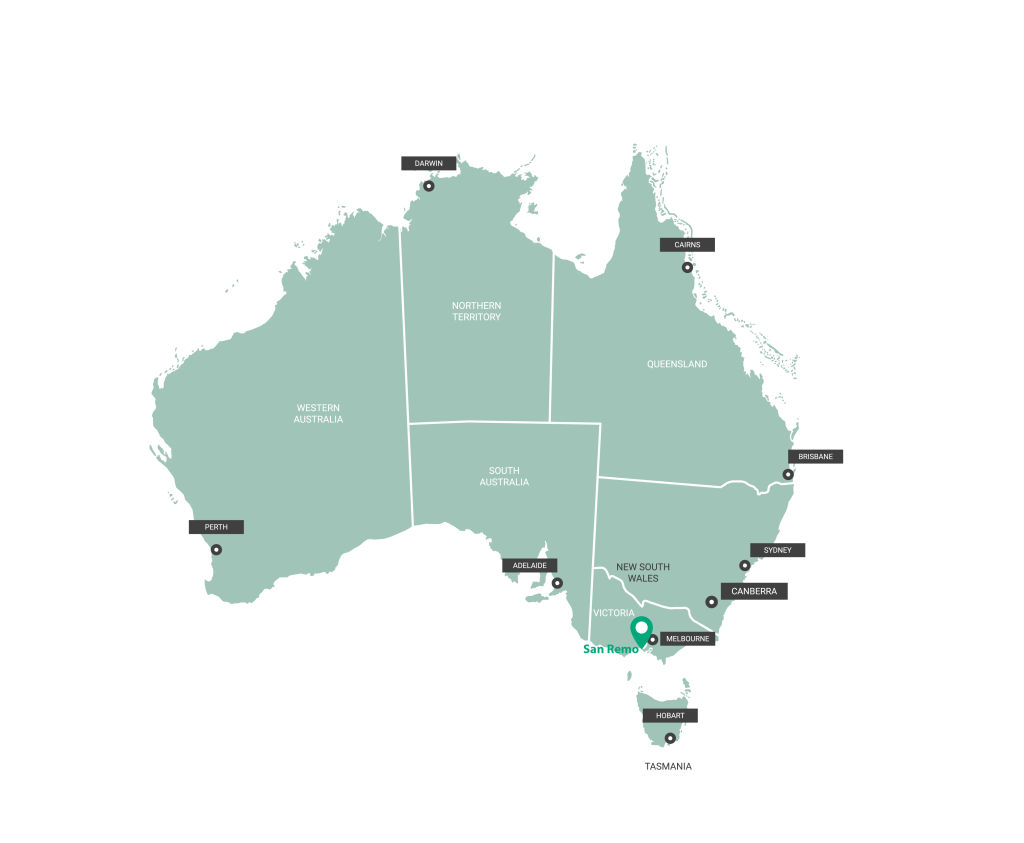From our moving partner, Muval
Interstate Pet Transport – Moving Animals Across Australia
The cost of moving a pet interstate can vary widely depending on factors such as the type and size of your pet, travel distance, chosen mode of transportation, and additional services.
Tips and Considerations for Moving with Pets
On average, interstate pet transport prices can range depending on the type of travel, distance travelled, and type of pet. It’s recommended to obtain quotes from reputable interstate pet transport providers and compare the costs and services they offer. Whether you need to move a dog interstate or organise an airport drop off for your cat, it will pay to pick up some tips below.
Moving with pets can be a rewarding experience, but it also requires careful planning and consideration to ensure their safety and well-being during the journey. Whether you’re embarking on a pet transport interstate or a shorter move, there are essential tips to keep in mind.
Catering to Special Needs
For pets with special needs, such as senior pets or those with medical conditions, it’s crucial to consult your veterinarian before the move. They can provide guidance on how to make the journey comfortable and stress-free for your furry friend. Ensure you have an ample supply of any medications or special dietary requirements. Creating a familiar and calming environment within their travel crate can help alleviate anxiety during the trip.

Puppies and Kittens
Transporting young animals, such as small puppies dogs and kittens, requires extra attention. Their immune systems may still be developing, so it’s advisable to avoid exposure to other animals during the journey, if possible. Keep their travel crate well-ventilated and comfortable, and provide them with their favourite toys or blankets to create a sense of safety and familiarity.
Large and Extra Large Dogs
When dealing with larger dog breeds, like extra large dogs, it’s essential to ensure their travel crate is appropriately sized and provides enough space for them to move comfortably. Adequate ventilation is crucial, especially for breeds that are more prone to overheating. Taking breaks during the journey for your dog to stretch their legs, have a drink, and relieve themselves is equally important.

Cats and Pet Fish
Cats and pet fish require their unique considerations during transport. Cats can be sensitive to changes in their environment, so keeping their travel crate in a quiet and familiar spot can help reduce stress. For fish, maintaining a stable water temperature and oxygen levels is essential. Consider using battery-operated air pumps and secure containers to ensure their well-being.
Remember, regardless of the type of pet you’re moving, gradual preparation for transporting pets is key. Introduce them to their travel crate well in advance and associate it with positive experiences. Additionally, avoid feeding your pets a large meal right before the journey to prevent discomfort. By taking these tips and considerations into account, you can help make the experience of pet transportation a smoother and more pleasant one for both you and your beloved companions.
Relocating with pets requires careful planning and preparation to minimise stress and ensure their well-being. Here are some more essential considerations.

Preparation
Schedule in veterinary care
Ensure your pet is in good health and up-to-date on vaccinations before the journey.
Microchipping and identification
Ensure your pet’s identification details are updated, and consider microchipping if not already done.

Crate training
Familiarise your pet with their travel crate to reduce anxiety during the journey.
Packing essentials
Pack your pet’s essentials, including food, water, toys, and bedding, for the trip.
What Is the Best Way to Transport My Pet?
The best way to transport your pet depends on factors such as travel distance, your pet’s size and temperament, and your preferences. Options include air travel, road transport service, pet transport interstate and door-to-door services.

Settling In
Gradual adjustment
Allow your pet time to acclimate to their new environment, both during and after the journey.
Familiar items
Surround your pet with familiar items, such as their bedding and toys, to provide comfort.
Making Your New Home Pet Safe
Pet-proofing
Conduct a thorough pet-proofing of your new home to eliminate potential hazards.
Secure outdoor areas
Ensure your pet’s safety by securing fences and gates in the new surroundings.

FAQs
How Much Does Pet Transport Cost?
The cost of pet transport is influenced by a range of factors beyond just the type of pet and travel distance. Additional expenses can include various pet transport costs, such as an interstate delivery charge or pet delivery charge if you’re moving across state borders. Keep in mind that the chosen mode of transportation can also impact the overall cost. For instance, air travel might have different fee structures compared to road transport, and this can influence your decision-making process. To get a comprehensive understanding of the expenses involved, it’s wise to request detailed quotes from different pet transport providers.

It’s important to note that pet transport costs can vary based on the specific needs of your pet. For instance, if you’re transporting dogs, larger breeds might require more spacious crates and thus incur higher fees. Similarly, certain pets may necessitate special accommodations, such as temperature-controlled environments or additional handling care, which can impact the overall pet transport cost too. Additionally, fuel costs and any potential tolls or permits required for interstate travel can contribute to the final price. By taking all these factors into consideration, you can make an informed decision that suits both your budget and your pet’s needs.
When comparing various interstate pet transport services and prices, it’s not just about finding the most affordable option. Quality of service and the well-being of your pets should also be paramount. A provider with a slightly higher cost may offer superior care, well-maintained vehicles, and experienced staff who ensure your pets’ comfort throughout the journey. Take the time to thoroughly research and read reviews of different interstate pet transport companies to gauge their reputation and reliability. Ultimately, finding the right balance between cost and the level of care provided is essential when transporting your furry or feathered companions to their new home.

Is It Safe to Fly My Pets?
Many airlines understand the importance of safe and comfortable air transport for pets and offer cargo options specifically designed to accommodate furry passengers. However, before booking your pet’s flight, it’s essential to delve into airline policies and details related to pet travel. Researching the rules and regulations set by different airlines is crucial to ensure a smooth and secure journey for your beloved companion.
When preparing for your pet’s air travel, remember that airport drop off and boarding assistance are significant aspects. Some airlines provide designated drop off areas for pets, allowing you to bid a heartfelt farewell before their journey. Boarding assistance ensures that your pet is carefully handed over to the airline’s staff, who are trained in handling animals with care and expertise.

If you’re considering air transport for your pet, opting for a direct flight whenever possible is advisable. Direct flights minimise the stress of layovers and reduce the overall travel time for your pet. This can be particularly beneficial for pets who may find the process of take-off, landing, and switching flights unsettling.
An appropriate container for dog is vital for air travel. Airlines typically have specific guidelines regarding crate dimensions, ventilation, and structural integrity. Ensuring that your pet’s crate meets these requirements is crucial to prevent any complications during check-in and boarding.
Major airports often offer facilities and amenities catering to pets and their owners. From designated pet relief areas to pet-friendly waiting lounges, these airports strive to make the journey more comfortable for your furry friend. If you’re considering international travel, be sure to check the regulations and requirements of the airport and destination country, as they may have specific guidelines for importing pets.

Booking your pet’s flight well in advance is recommended, as airlines often have limited space for pets in cargo. By reserving your pet’s spot weeks prior to the scheduled departure time, you increase the likelihood of securing a spot on the flight.
It’s worth noting that different airlines may have varying weight limits for pets travelling in cargo. Be sure to inquire about these weight restrictions and plan accordingly. By being well-informed and prepared, you can make air travel a safe, comfortable, and stress-free experience for your furry companion.
How Do I Prepare My Pet for Domestic Travel?
Preparing your pet for domestic travel is a responsibility that pet owners should approach with care and consideration. Beyond the logistics of pet collection and pick-up, there are essential steps to take to ensure the well-being and comfort of your fur baby during the journey.
Crate training plays a vital role in preparing your pet for travel. Introducing your pet to their travel crate well in advance allows them to become accustomed to the space and reduces anxiety on the day of departure. Gradually associate the crate with positive experiences, using treats and toys to create a sense of security.

Another critical aspect of preparing your pet for travel is ensuring their health is in optimal condition. Schedule a visit to your veterinarian weeks before the trip to ensure that your pet’s vaccinations are up-to-date. Your veterinarian can also conduct a thorough health check to identify any potential issues that could affect your pet’s comfort during travel.
Packing your pet’s essentials is akin to assembling a travel kit tailored to their needs. Include familiar items such as their favourite toys, blankets, and a supply of their regular food and treats. This not only provides comfort but also ensures that your pet’s diet remains consistent throughout the journey, reducing the risk of digestive issues.

Consulting your veterinarian is a cornerstone of preparing your pet for domestic travel. Veterinarians possess the expertise to guide you through the process, addressing any concerns you might have. Their advice extends beyond health considerations to encompass behavioural tips and strategies to alleviate travel-related stress for your fur babies.
For new pet owners, the process of preparing a young fur baby for domestic travel can be both exciting and daunting. Patience and gentle guidance are key as you introduce your new pet to the concept of crate training and prepare them for their journey. Establishing a positive association with their travel crate early on can make a significant difference in how well they adapt to the experience.

Thorough preparation is essential when it comes to domestic travel with your pets. By focusing on crate training, health considerations, and packing their essentials, you set the stage for a safe and comfortable journey for your beloved fur babies. Consulting with a veterinarian provides expert guidance and ensures that you’re equipped with the knowledge needed to make the travel experience as stress-free as possible for both you and your pets.
How Do I Book Transport for My Pet Within the Country?
When it comes to entrusting your pet’s interstate journey to professionals, thorough research is of the utmost importance. Take note of reputable pet transport companies that specialise in their interstate dog transport services. Start by seeking recommendations from fellow pet owners, reading online reviews, and checking with local veterinarians for their insights.
Upon compiling a list of potential companies, it’s time to gather information about their services and pricing. Obtain quotes from each service provider, ensuring that the quotes are comprehensive and transparent, covering not only the basic transportation cost but also any other expenses that might arise during the journey. Be sure to inquire about any additional services they offer, such as door-to-door pick-up and delivery, and how these might impact the overall cost.
During your inquiries, ask about the company’s procedures and facilities. It’s essential to have a clear understanding of how your pet will be cared for during the journey. Inquire about the conditions within their transport vehicles, the frequency of breaks and exercise, and the measures taken to ensure your pet’s safety and comfort.

Choosing the right pet transport service goes beyond price; it involves finding a provider that aligns with your pet’s unique needs. If your pet has specific requirements, such as special care for a senior pet or extra attention for a new pet, make sure to communicate these needs with the transport company. A reputable company will be willing to accommodate these requests and provide the necessary extra care.
Before finalising your decision, ensure that the company you contact is aware of your pet’s new address and any relevant contact details. This helps ensure a smooth handover and delivery process. Also, clarify their payment terms and methods to avoid any confusion or delays.
Selecting the right pet transport service for interstate travel involves meticulous research, careful consideration of services and pet transport costs, and open communication with potential providers. By taking the time to gather information, ask questions, and choose a company that prioritises your pet’s well-being, you can rest assured that your furry companion will receive the care and attention they deserve during their journey to their new home.

Be aware of any restrictions on your animals in your new state before you move
When relocating with pets across different states in Australia, it’s essential to be aware of various restrictions and requirements to ensure a smooth transition for your furry companions. Each state might have specific regulations concerning the entry of pets. Generally, you’ll need to obtain a valid health certificate from a registered veterinarian, confirming your pets’ good health and up-to-date vaccinations. Some states may require quarantine periods, especially for exotic animals, to prevent the spread of diseases. Microchipping and registration with local councils are often mandatory to help identify and locate your pets if they get lost. Researching and adhering to transportation guidelines is crucial, whether you’re moving by air, road, or rail. Additionally, certain animals such as reptiles and birds might have additional permits needed due to their unique characteristics. Staying informed about the rules of your destination state and planning ahead will help ensure a safe and comfortable journey for your beloved pets.
Interstate pet transport services offer a convenient and safe way to relocate your beloved pets across different states in Australia. By choosing the best transportation option, preparing your pets for the journey, and following essential tips, you can ensure a smooth and stress-free transition for both you and your furry companions. Remember to prioritise your pets’ well-being and comfort throughout the process, making their journey to their new home a positive and memorable experience.







